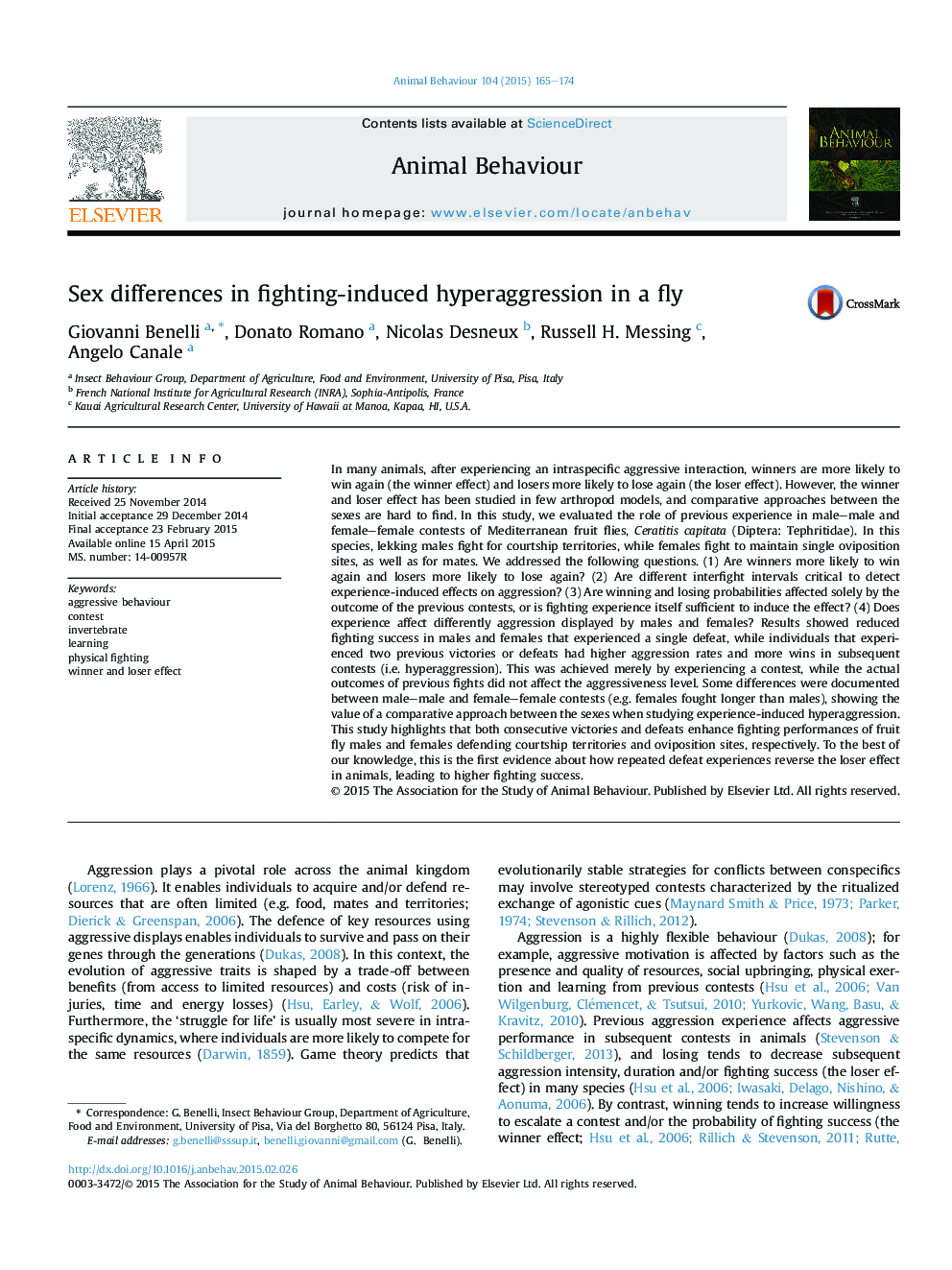| کد مقاله | کد نشریه | سال انتشار | مقاله انگلیسی | نسخه تمام متن |
|---|---|---|---|---|
| 2416303 | 1552224 | 2015 | 10 صفحه PDF | دانلود رایگان |
• Aggressive experience influences subsequent contests in many animal species.
• We studied winner and loser effects in male and female Ceratitis capitata.
• Random selection exploited residence as a predictor of fighting success.
• Twofold winners and losers fought longer and won more in subsequent contests.
• Experiencing physical combat did not affect subsequent fighting skills.
In many animals, after experiencing an intraspecific aggressive interaction, winners are more likely to win again (the winner effect) and losers more likely to lose again (the loser effect). However, the winner and loser effect has been studied in few arthropod models, and comparative approaches between the sexes are hard to find. In this study, we evaluated the role of previous experience in male–male and female–female contests of Mediterranean fruit flies, Ceratitis capitata (Diptera: Tephritidae). In this species, lekking males fight for courtship territories, while females fight to maintain single oviposition sites, as well as for mates. We addressed the following questions. (1) Are winners more likely to win again and losers more likely to lose again? (2) Are different interfight intervals critical to detect experience-induced effects on aggression? (3) Are winning and losing probabilities affected solely by the outcome of the previous contests, or is fighting experience itself sufficient to induce the effect? (4) Does experience affect differently aggression displayed by males and females? Results showed reduced fighting success in males and females that experienced a single defeat, while individuals that experienced two previous victories or defeats had higher aggression rates and more wins in subsequent contests (i.e. hyperaggression). This was achieved merely by experiencing a contest, while the actual outcomes of previous fights did not affect the aggressiveness level. Some differences were documented between male–male and female–female contests (e.g. females fought longer than males), showing the value of a comparative approach between the sexes when studying experience-induced hyperaggression. This study highlights that both consecutive victories and defeats enhance fighting performances of fruit fly males and females defending courtship territories and oviposition sites, respectively. To the best of our knowledge, this is the first evidence about how repeated defeat experiences reverse the loser effect in animals, leading to higher fighting success.
Journal: Animal Behaviour - Volume 104, June 2015, Pages 165–174
